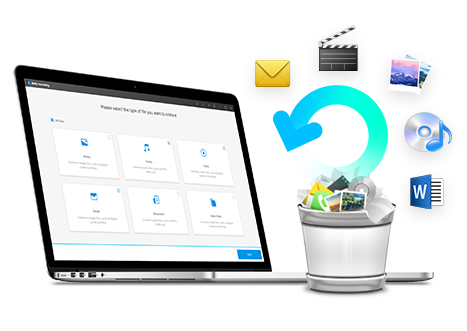- What is malware, what kind of problems they might cause, how they get on your computer
- List different types of malwares
- How to delete malwares from your computer
- Things to do after deleting malwares
Part 1 What is malware, what kind of problems they might cause, how they get on your computer
Malware is a malicious code that infiltrates a computer even without the consent or knowledge of the Windows user. Actually from the word "malicious" it comes the "mal-ware" word and there are a lot of malware types such as viruses, trojans, worms, spyware that could steal sensitive data. There are well known methods how the malware get on your computer like opening bad intentioned attachments from your email, downloading some files from untrusted online sources, visiting suspicious websites. Our days, there are many well written malwares as they can attack and pass away your antivirus , especially if it is not updated.
Part 2 Different types of malwares
Different types of malware are created for profit by using forced advertising known as adware, for taking secretly sensitive data - spyware, for spreading email scam, for money extortion such as ransomware. With so many malwares existing, they are grouped in families of malware. For example, Zuten is a family of malware that steals data from online games, or FakeScanti that is a rogue claiming to scan for malware, and even shows fake warnings of "malicious programs and viruses". There are several names for FakeScanti, such as AKM Antivirus, ProAV Guard Online, Windows Antivirus Pro, Your PC Protector and other names that involved a lot of attention. Do not rely on unknown "antiviruses" with sofisticated names. One good idea is to check offers from the Windows website or from authorised websites.
Another malware family is Netsky, a mass-mailing worm that targets Windows computers and infects them. The basic idea is that , after one user opens an e-mail attachment that contains a Netsky, the worm is activated and harm computer, even networks with computers.
In order to keep away malware from your computer, you should do regular updates for your operating system, for your antivirus, and for any genuine software in use.
Part 3How to delete malwares from your computer
Checking and, if it is the case, deletion of malwares, must to be a regular action for any Windows user. Actually, for users with devices having any operating system.
One free tool for checking and removing malwares is Microsoft Malicious Software Removal Tool. It free, easy to download and install on your computer. It can be used on computers with Windows 7, 8, 8.1, and even 10. Also, the older versions such as Vista or XP are supported.
Follow the steps below in order to use the Microsoft Malicious Software Removal Tool:
1. Go to Microsoft website and download the tool
https://www.microsoft.com/security/pc-security/malware-removal.aspx
2. Install the tool
Just follow the wizard steps. The easier way for the first use is just to click on "Next" and the tool will check for malware by making a Quick scan. If it is the case, you will be notified that is recommended a deeper search.

3. Scaning and deletion of malware
The utility runs in background during the checking of malware. The time for checking the infected files is depending on the number and size of your files. However, you should wait as long as it needs because this is a very important action for your's computer safety and security. After completion of its operations, you will receive a report with malwares detected and removed.

Report after the scan:

Part 4Things to do after deleting malwares
adding protection to your computer to malwares
Your job is not yet finished in order to keep the computer's security on a high level. After scanning and deletion of malware, update your operating system and your antivirus. In the case you don't have an antivirus installed, now it is the time to use a genuine antivirus on your computer.
scan for possible data loss due to the malwares and recover the lost files (with wondershare data recovery)
Along with deletion of malwares, it might comes some troubles also, like data loss. In order to be sure that your computer is in a good state, do a scan for possible data loss. If it is the case, Wondershare Data Recovery will recover the lost files after performing the scan.
If you lost files on computer unfortunately, don't worry! You still have the chance to get lost data back. To recovery files from computer, you can have a try the following tool.
Recover lost data up to 550+ file types from your computer!

- Recover lost or deleted files, photos, audio, music, emails from any storage device effectively, safely and completely.
- Supports data recovery from recycle bin, hard drive, memory card, flash drive, digital camera and camcorders.
- Supports to recover data for sudden deletion, formatting, hard drive corruption, virus attack, system crash under different situations.
- Preview before recovery allows you to make a selective recovery.
- Supported OS: Windows 10/8/7/XP/Vista, Mac OS X (Mac OS X 10.6, 10.7 and 10.8, 10.9, 10.10 Yosemite, 10.10, 10.11 El Capitan, 10.12 Sierra) on iMac, MacBook, Mac Pro etc.
Delete / Undelete Files
- Deleted Files I+
- Deleted Files II+
- Undelete Files I+
- Undelete Files II+
-
- EaseUs Deleted Files Recovery alternatives
- Recover shift deleted files
- Undo accidental delete
- Retrieve deleted contacts
- Mac undelete
- Recover deleted folders
- Android Apps to recover deleted files
- System restore deleted files
- Recover deleted files from Android
- Recover deleted photos
- Recover deleted files from recycle bin
- Recover deleted partition
- Recover Dropbox deleted files






